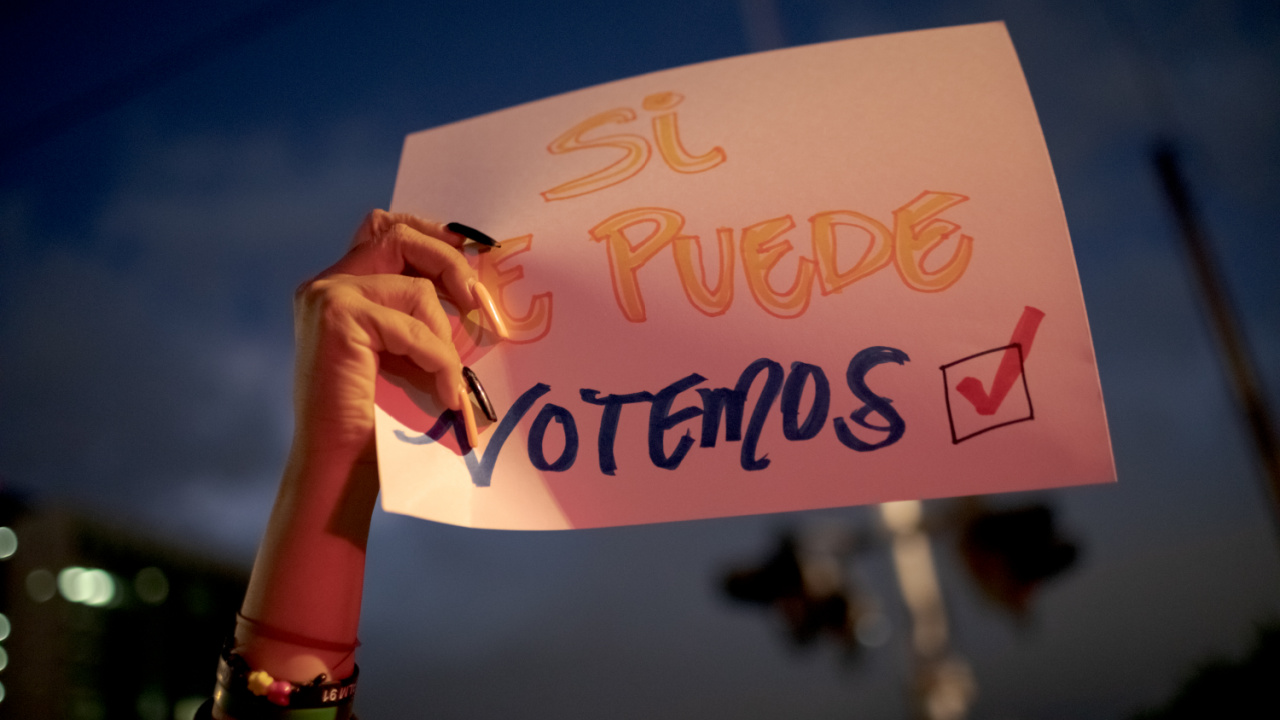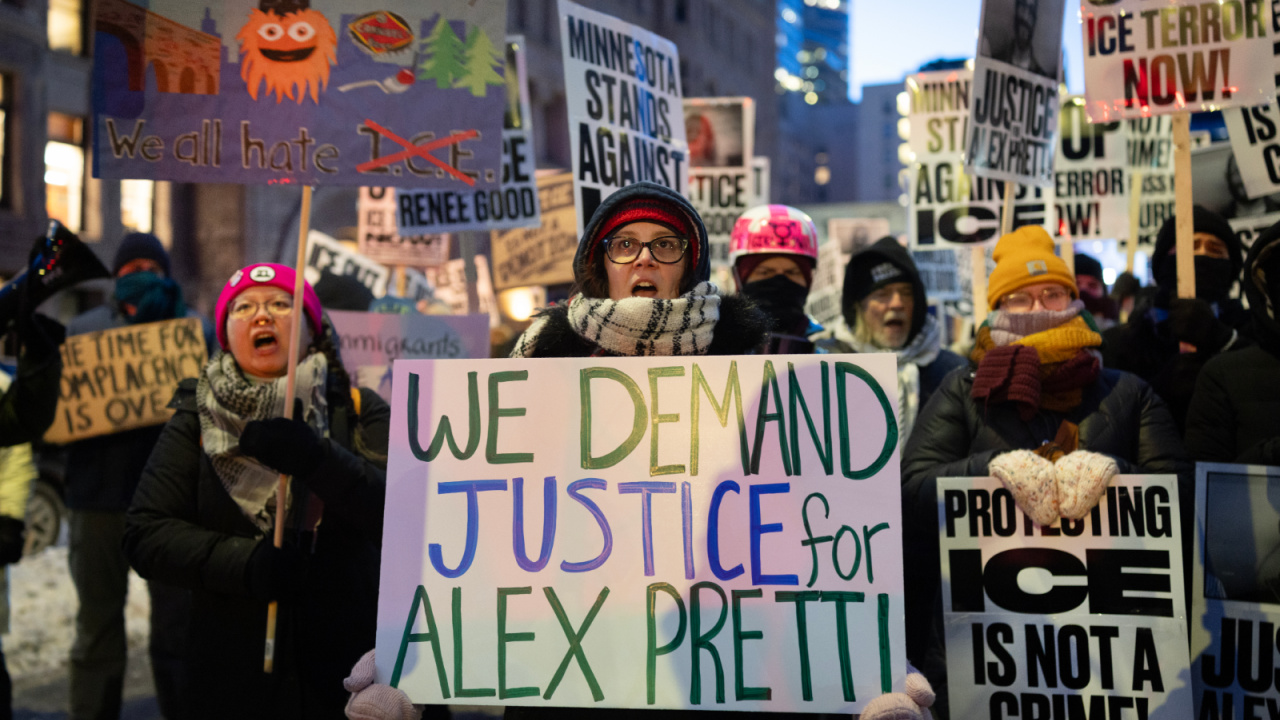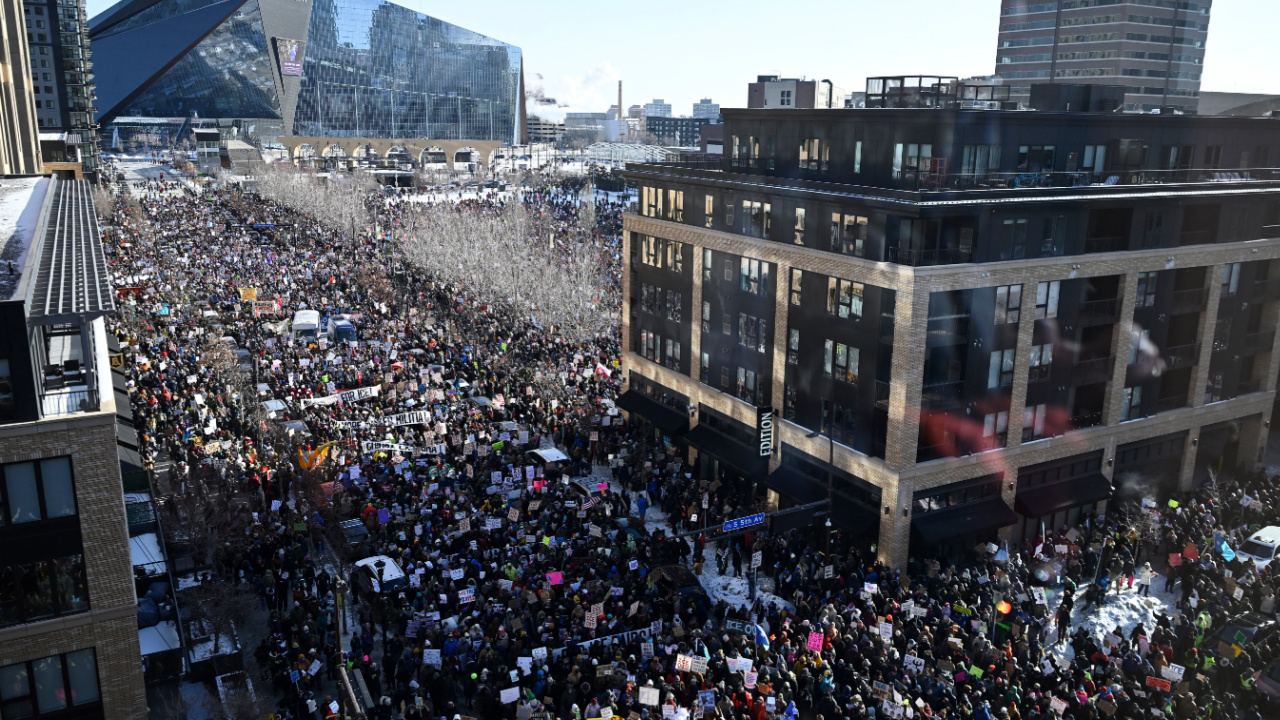
Op-Ed: Latino Voters Could Decide Elections If We Showed Up
Latinos in the United States are facing wave after wave of the political tsunami that is the American government in 2025. The far-right presidency is successfully executing the largest deportation operation in American history and threatening birthright citizenship. The left isn’t innocent either: weak leadership is allowing constitutional principles to crumble and Latinos living in many blue states feel crushed by the unaffordable cost of living. So, what will it take to motivate Latino voters?
Why isn’t political pressure pushing greater participation?
You would think all this political pressure, which has been building since 2016, would lead Latino voters to care about politics at levels matching the urgency of these crises. And let’s be clear, we are discussing if Latinos at large care about politics, not just if they’re interested or entertained by it. Liking and sharing a political meme or a snappy reel is amusing but it doesn’t change anything or persuade anyone.
Caring means having a stake in the outcome and trying to shape it. In a democracy that
means showing up to vote on election day. Still, under that framing Latinos must be caring and voting at overwhelming levels, right? Unfortunately, no.
Election researchers recently published some pretty disappointing statistics on Latino turnout:
- Across the three elections of 2016, 2020, and 2024 only 25 percent of Latino citizens voted in all three elections. Meanwhile 48 percent of white citizens voted in all three elections.
- Latinos are about twice as likely as white adults not to have voted at all in these three elections (41 percent for Latinos, 20 percent for white adults).
How could so many voting eligible Latinos skip these elections? Presumably, our people have an opinion about both political sides – one claiming that immigrants are dangerous and the other portraying itself as the sole protector. Our family group chats are filled with news stories and political jokes. We know Latinos are paying attention to the world around them.
Latino voters hold incredible electoral power but are struggling to use it
Clearly, today’s politicians and their elevated partisan rhetoric are not going to get Latino voters off the sidelines. The messages from the two parties fail to inspire enthusiasm in our communities. We also know that voting is extra hard for working people – how do you take time off to vote when you’re barely keeping up with the bills?
But we cannot just complain about the political system as it is – not when it’s in our power to change it.
We have agency over our political participation. It is not up to a President or politician whether we can vote. Voting is a choice we make for ourselves. Election Day is generally once every two years. Surely, if we can make time to watch a game, attend a concert, or grab lunch then we can spend a couple hours on Election Day to do our most important job as citizens. Don’t forget that many states have passed laws to make voting easier, including the option to vote by mail and requiring employers give employees time off to vote.
There are some bright spots of news on Latino voting. We showed up in historic numbers for the 2020 presidential race. Organizations like the Latino Victory Fund and Brown Issues worked hard to energize voters, and 16.5 million Latinos turned out.
But we can do so much better! There were 30.6 million Latinos eligible to vote in 2020. That means just slightly over half of them showed up to the polls.
Our community is leaving political power on the table
What will it take for the other 14 million Latinos to engage in the democratic process? That’s a question that should preoccupy all Latinos and our political leaders. We cannot afford to leave so much Latino power on the sidelines.
In less than one month, Latinos across America will have the chance to step up. There are critical elections happening on Tuesday, November 4. Save it on your and your family’s calendars now!
Latinos in California will decide if Democrats can counter Republican gerrymandering (changing district lines for political advantage) by voting on Proposition 50. Those in New York can set the direction for their city in an exciting mayoral race. New Jersey and Virginia are choosing their governors for the next few years.
Since this isn’t a presidential year election, it’s easy to tune out and let another voting opportunity slip away. But in this political climate, with family members being arrested and the economy threatening another recession, the question for Latinos isn’t, “why should I care about voting?”
The question is: “How could you not?”
Abram Diaz is a Chief of Staff in the California State Assembly and a lecturer on politics at American River College. He previously served as chair of the California Latino Capitol Association, a group dedicated to growing Latino representation in California politics.




